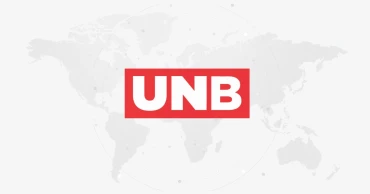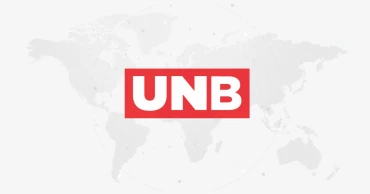EU market
Bangladesh's apparel sees highest growth in EU during January-August
The European Union's (EU) apparel imports from Bangladesh saw the highest growth among all the top exporter countries during January-August this year, Eurostat, the statistical office of the EU, said.
During the first eight months of 2022, the EU imported clothing worth $67.18 billion from around the world, including $15.37 billion from Bangladesh.
Bangladesh remained the second largest apparel import source for Europe with a 22.89 percent share of the EU's total apparel import.
The EU's apparel import from Bangladesh increased by 45.26 percent during the first eight months of 2022 compared to the same period in 2021.
Read more: BGMEA wants increased police vigilance to stop RMG goods theft during transportation
China, the top apparel import source for the EU, had 28.06 percent share, registering 26.59 percent year-on-year growth. The EU's apparel imports from the country reached $18.85 billion in January-August this year.
"While China had the larger share of the EU's total apparel import, Bangladesh saw better export growth than it," Bangladesh Garment Manufacturers and Exporters Association (BGMEA) Director Md Mohiuddin Rubel said.
Turkey, the third largest source for the EU, posted 20.38 percent growth during the same period. The EU's imports from the country grew by 16.97 percent.
Also, the EU imported apparel worth $3.56 billion from India. The EU's imports from the country grew by 28.85 percent compared to the previous year.
Read more: Initiatives taken to establish fair price shops for RMG workers
Other top countries having high growth were Cambodia 42.21 percent, Pakistan 31.34 percent, and Indonesia 35.41 percent.
"Bangladesh's apparel has always done well in the European market. So far the import figure of the EU indicates a good position for Bangladesh's apparel in the market. Numbers from January to August indicate that the EU's imports from Bangladesh will maintain a positive trend till September," Rubel said.
"However, it may slow down afterward as retail sales are already affected by geopolitical tension, global economic turmoil, and buyers being cautious about overstock and current production."
Read More: Bangladesh seeks zero tariffs on apparel exports to US at 6th TICFA meeting
3 years ago
Rebuilding Bangladesh: A resolute plan for resilient recovery
Building a resilient economic recovery to emerge stronger from the Covid pandemic would be Bangladesh's growth mantra for the next three years.
This inference can be drawn from a government document that looks at how the Covid second wave and the consequent economic slowdown have affected the growth momentum in Bangladesh and mulls measures to overcome the crisis.
Read: Post-pandemic economy: Bangladesh's blueprint for reviving investment atmosphere
According to the Finance Ministry document, economic recovery will be central to Sheikh Hasina government's forward-looking agenda for the next three years, which will focus on the effective implementation of a slew of state policies through agressive spending.
"In the medium term, the government will put emphasis on economic recovery from the fallout of Covid-19 and on implementing the Eighth Five-Year Plan, SDGs (sustainable development goals), Second Perspective Plan, Delta Plan 2100, and Blue Economy strategies," it states.
Over the past decade, Bangladesh has been achieving a steady and stable economic growth along with maintaining sound macroeconomic stability with stable inflation, low public debt, and greater resilience to external shocks.
In fact, in FY19, the growth rate reached a record 8.15 percent but due to the Covid-19 fallout, "the growth rate sharply declined to 5.2 percent in FY20", the document says.
"In the last fiscal, the gross domestic product (GDP) growth target was initially set at 8.2 percent, but the second wave of the pandemic in April 2021 forced a revision of the target to 6.1 percent."
On the demand side, private consumption, export-import and public investment have largely been affected by the pandemic. And on the supply side, farm output has been satisfactory so far "but manufacturing, construction and service sectors have been significantly affected", the document says.
Read:ADB pegs Bangladesh's GDP at 6.8% this fiscal
GDP is the total monetary or market value of all finished goods and services produced in a country within a specific time.
Alongside, Bangladesh also achieved praiseworthy improvement in social indicators, such as reducing poverty rate and infant mortality rate and increasing life expectancy and literacy rate.
As per the document, Bangladesh has already qualified for the least developed country (LDC) graduation. "It has met, for the second time, all the three eligibility criteria for LDC graduation involving income per capita, human assets, and economic and environmental vulnerability."
4 years ago
BGMEA wants Denmark's support to continue duty benefits in EU market
Bangladesh Garment Manufacturers and Exporters Association President Faruque Hassan on Sunday sought Denmark’s support in continuation of duty-benefit for Bangladesh in the European Union for 12 years.
This support, he said, is needed to ensure Bangladesh’s smoother transition after the graduation from LDC in 2026.
Faruque discussed the issue when Ambassador of Denmark to Bangladesh Winnie Estrup Petersen met him at BGMEA office in Gulshan.
BGMEA Vice President Shahidullah Azim, Vice President Miran Ali, Søren Asbjørn Albertsen, Sector Counsellor, and Ali Mushtaq Butt, Commercial Counsellor at the Danish Embassy were also present.
Denmark is a member country of the European Union which provides duty-free market access to Bangladesh as a LDC under its EBA programme.
Faruque requested the ambassador to share the positive development and stories about the RMG industry, she witnessed during her stay in Dhaka, with both brands and consumers.
He also called on the envoy to request Danish brands and retailers to be more rational in pricing as nobody can justify lower price to produce socially fair goods.
They had discussions about issues related to the readymade garment industry in Bangladesh, including its progress in the areas of workplace safety, environmental sustainability and wellbeing of workers.
They also talked about scope of further collaboration and cooperation from Denmark especially in enhancing productivity and facilitating more use of energy-efficient technologies in the garment industry of Bangladesh.
4 years ago
EU market: BGMEA optimistic about GSP+ benefits after Bangladesh's graduation
The apex trade body of Bangladesh's apparel industry has said there is no major barrier for the country to get GSP+ benefits in the European market whenever applicable as the country graduates from the club of least developed countries (LDCs).
Bangladesh Garment Manufacturers and Exporters Association (BGMEA) President Faruque Hassan came up with information during a press conference at a city hotel Saturday while noting that the precondition for the GSP+ on import threshold (7.4 %) has been removed from the proposed GSP regulations for 2024-2034.
The conference was arranged to share the outcome of his recent visit to the US and Canada.
The BGMEA chief thanked the EU for its favourable initiative to countries like Bangladesh.
Everything but Arms (EBA) is a special arrangement for the LDCs, providing them with duty-free, quota-free access to the EU market for all products except arms and ammunition.
Read: BGMEA discusses export, FDI opportunities with Bangladesh envoy
The BGMEA President said the European Union (EU) is Bangladesh's key export market with around 60 per cent of exports.
He said Bangladesh will enjoy the existing duty-free and quota-free market access in the European countries until 2029 following the country's graduation.
"The government and the BGMEA are working together to ensure the continuation of the EBA facilities for 12 years after 2029," he said.
4 years ago


.jpg)
.jpg)

